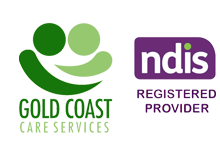Disability is a multi-faceted and complex arena to tackle. There are issues within issues and
areas where we have to think about doing even more to ensure that everyone gets access to
the same opportunities and support. For example, people of color often struggle greatly in
getting access to even basic recognition for their disability, and getting support for that is even
harder. It is one of the biggest inequalities of our time, and it leads to a lot of major issues which
are hard to work around.
Even today, racial inequality persists in many parts of the world. There are plenty of people who
are black or indigenous who are treated differently and generally excluded from mainstream
society. If we look at this issue, we can begin to see how much harder it might be for these
people to try and get support for their disabilities or even get them recognised in the first place.
It is an ongoing problem, and one with a lot of roadblocks to try and navigate before we can go
about getting anything close to true equality and what that means for people.
First of all, you’d have to address the racism undertones which permeate most discussions. It is
hard to try and make any real change when these attitudes persist. Once that has been solved,
it is important to establish a space where people can seek support and get a diagnosis for their
disabilities and then be given guidance on how they can move forward with getting support and
help. After all, it is wholly possible that people who have been kept out of these circles for a
while wouldn’t know where to begin or how to go about making a proper change in their lives.
At the end of the day, we have to remember the core concept of disability support – equality for
all. It is vital to try and push for people who aren’t equal in society to become equal to the rest,
and this is disabled people but especially disabled people of color and those who are often the
most marginalised in society. It is these people who need support the most, after all – they have
the same challenges as everyone else but with even less support available. We have to put
them at the forefront of what we do and acknowledge that they need more support to be on an
even keel.
We will continue to advocate for people who need extra help and support, and BIPOC
communities who have a disability are at the top of the list. They need more help than most, and
we have a responsibility to try and offer that help where we can. If we don’t recognise the plight
of people who are struggling for even basic recognition, then we won’t be able to make real
change. Equality for everyone means everyone, and not just those who represent the visible
majority of the disabled community.
